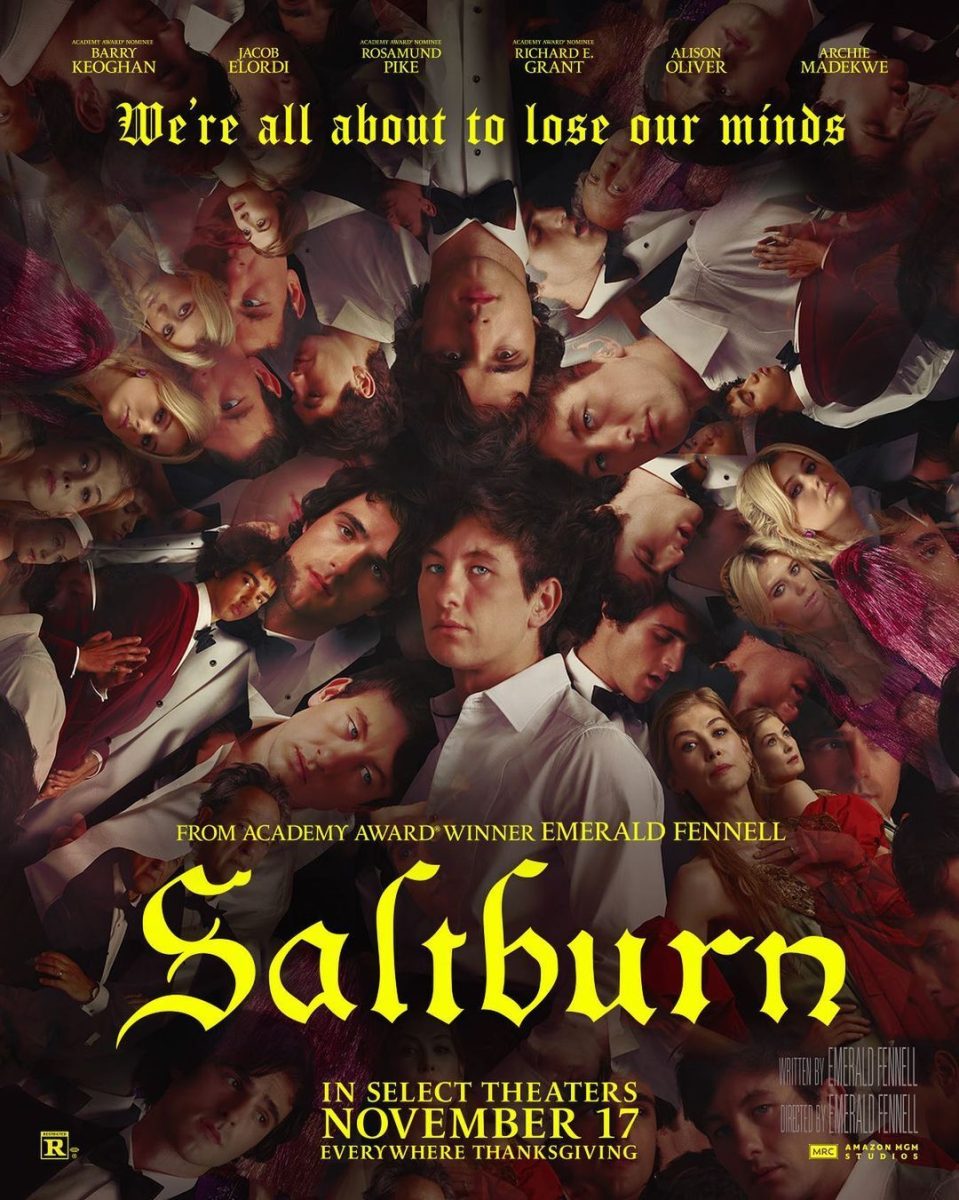Emerald Fennell’s sophomore dark comedy “Saltburn” equally enthralls and disturbs its audience with a sinister tale of lust and desire.
The story of “Saltburn” focuses on Oliver Quick (Barry Keoghan), who appears to be a shy, insecure and nervous student who struggles to fit in with his fellow upper-class students at the University of Oxford. Despite this, Quick somehow manages to attract the attention and sympathy of Felix Catton (Jacob Elordi), who invites him to his family’s country manor, Saltburn, for the summer.
The design of the titular house is a mixture of gothic and expressionist architecture that depicts a satirical take on excessive, materialistic wealth while also creating a suspenseful atmosphere that leaves audiences on the edge of their seats.
The movie begins to take a turn when the pair arrives at Saltburn. Once invited through the threshold, Quick slowly but surely makes himself at home. As the summer goes on, he charms and seduces the Catton family with his oddly endearing appearance and mannerisms, while those who refuse to accept him find themselves being slowly alienated from the herd until they are cast out of paradise.
Barry Keoghan’s performance of Quick can best be described as vampiric. He hypnotizes both the characters in the film and the audience watching into feeling sympathy and pity for him. However, while he may not suck the blood of his victims, he does bleed them dry of their wealth and possessions before sending them to a grim fate.
Catton is played brilliantly by Jacob Elordi, who manages to find a perfect balance between arrogance and compassion. He shows a sort of naivety to his place in the world and seems to take for granted how much privilege he has. At the same time, his sympathy for Quick, someone he believes to be a fellow student with a troubled past, is genuine and sincere. It is this sincerity that allows him to be taken advantage of and manipulated.
It is a shame that the story does not lend this level of complexity to the rest of the cast. The remaining members of the Catton family are generic upper-class stereotypes. There is the self-absorbed, vain mother, Elspeth Catton (Rosamund Pike), who loves attention, the hedonistic daughter, Venetia (Alison Oliver), who is obsessed with her appearance, the deadbeat relative, Farliegh Start (Archie Madekwe), and the father, Sir James Catton (Richard E. Grant), who is not given any interesting character traits. That is not to say that there is no depth to these characters, but they are not given enough focus for those depths to shine through.
A standout positive is the use of color in the movie, specifically the use of red and blue. Red is used throughout many moments of the film, which is appropriate given it is symbolic meaning for intense emotions. The film has intense moments of anger, passion and danger that are intensified from the significant use of red in the set design. Inversely, blue is used during some of Quick’s most vile actions in the film, creating a cold, emotional dissonance between the audience and the characters.
For those who are fans of dark humor and satirical social commentary, “Saltburn” will disturb and enthrall audiences with some strong acting, smart writing and disgustingly beautiful visual imagery.
As “Saltburn” shows, not all monsters have fangs and claws, sometimes the greatest threat is the person closest to you.









